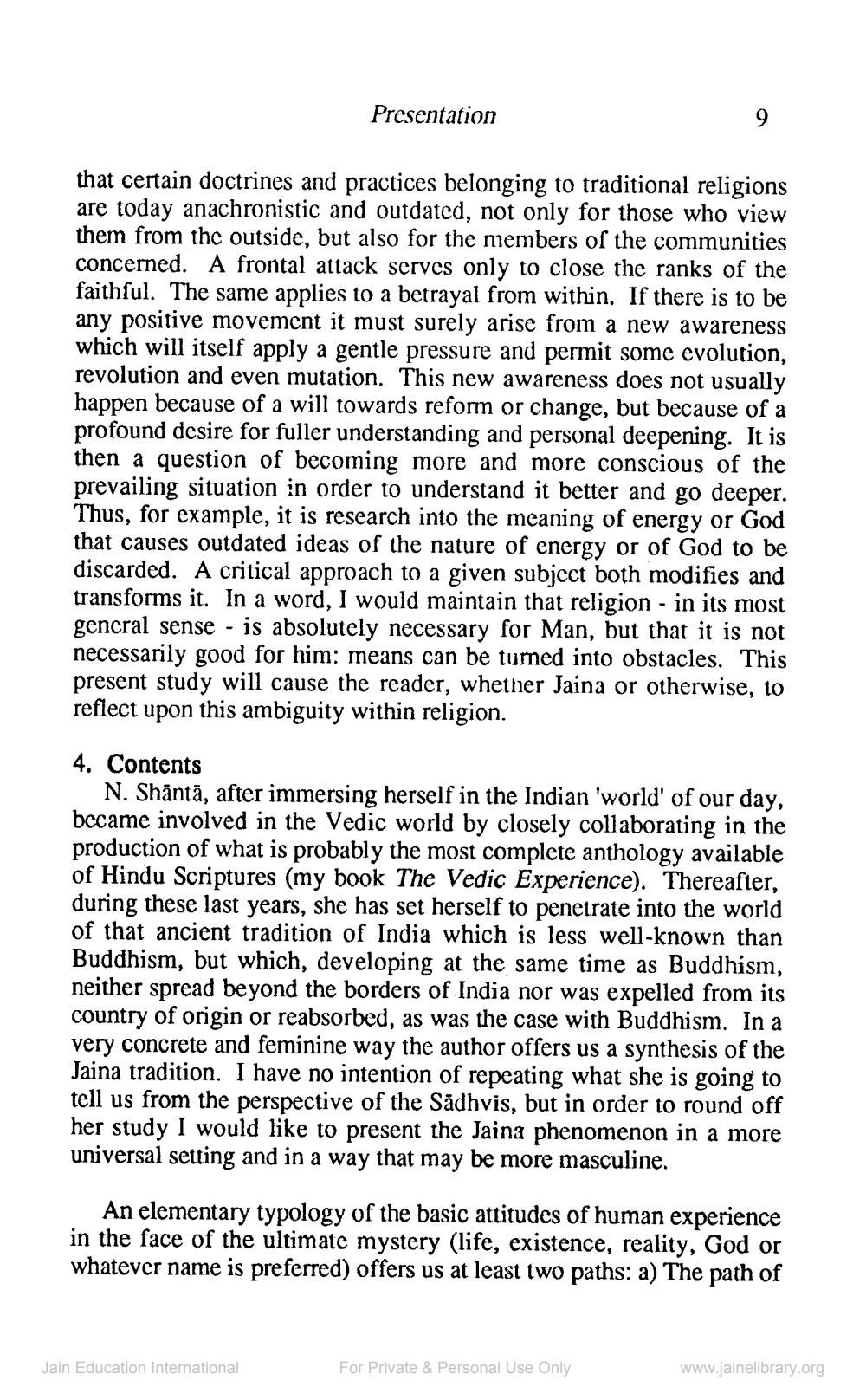________________
Presentation
that certain doctrines and practices belonging to traditional religions are today anachronistic and outdated, not only for those who view them from the outside, but also for the members of the communities concerned. A frontal attack serves only to close the ranks of the faithful. The same applies to a betrayal from within. If there is to be any positive movement it must surely arise from a new awareness which will itself apply a gentle pressure and permit some evolution, revolution and even mutation. This new awareness does not usually happen because of a will towards reform or change, but because of a profound desire for fuller understanding and personal deepening. It is then a question of becoming more and more conscious of the prevailing situation in order to understand it better and go deeper. Thus, for example, it is research into the meaning of energy or God that causes outdated ideas of the nature of energy or of God to be discarded. A critical approach to a given subject both modifies and transforms it. In a word, I would maintain that religion - in its most general sense - is absolutely necessary for Man, but that it is not necessarily good for him: means can be turned into obstacles. This present study will cause the reader, whether Jaina or otherwise, to reflect upon this ambiguity within religion.
4. Contents
N. Shāntă, after immersing herself in the Indian 'world' of our day, became involved in the Vedic world by closely collaborating in the production of what is probably the most complete anthology available of Hindu Scriptures (my book The Vedic Experience). Thereafter, during these last years, she has set herself to penetrate into the world of that ancient tradition of India which is less well-known than Buddhism. but which, developing at the same time as B neither spread beyond the borders of India nor was expelled from its country of origin or reabsorbed, as was the case with Buddhism. In a very concrete and feminine way the author offers us a synthesis of the Jaina tradition. I have no intention of repeating what she is going to tell us from the perspective of the Sadhvis, but in order to round off her study I would like to present the Jaina phenomenon in a more universal setting and in a way that may be more masculine.
An elementary typology of the basic attitudes of human experience in the face of the ultimate mystery (life, existence, reality, God or whatever name is preferred) offers us at least two paths: a) The path of
Jain Education International
For Private & Personal Use Only
www.jainelibrary.org




